β-Carbolines norharman and harman change neurobehavior causing neurological damage in Caenorhabditis elegans
文献情報
Luyao Zhang, Jialu Liu, Bufan Xu, Di Wu, Guoliang Li
β-Carbolines norharman and harman, belonging to the class of heterocyclic aromatic amines (HAAs), are typical hazardous substances produced during the thermal processing of food. Compared to other HAAs, there have been limited reports on the toxicity of β-carbolines. Nevertheless, the current studies are concerned with the neurotoxic effects of norharman and harman at high doses. It is still unknown whether the relatively low dose of β-carbolines in foods induces neurotoxicity and the mechanism of the toxicity. In this study, C. elegans was exposed to a series of gradients of norharman and harman (0, 0.05, 5, and 10 mg L−1). The survival rate and indicators of ethology (locomotor behaviors, foraging behavior, and chemotaxis ability) were assessed. The antioxidant system and the contents of neurotransmitters, as well as the activity of acetylcholinesterase (AChE), were evaluated. Additionally, the RNA-seq screening of differentially expressed genes (DEGs) revealed the potential molecular mechanisms of norharman- and harman-induced toxic effects. Our results indicated that the risk of long-term exposure to norharman and harman at low doses (food-related doses) should be emphasized. Moreover, β-carbolines might induce neurotoxicity by causing oxidative damage, regulating the content of neurotransmitters, and interfering with cytochrome P450 metabolism. This study would provide a toxicological basis for the neurotoxicity of β-carbolines and lay the foundation for the risk assessment of endogenous pollutants in food.
関連文献
IF 6.367
Triboelectric nanogenerators for a macro-scale blue energy harvesting and self-powered marine environmental monitoring systemIF 6.367
An aminophosphonate ester ligand-containing platinum(ii) complex induces potent immunogenic cell death in vitro and elicits effective anti-tumour immune responses in vivoIF 6.222
Permselective ion electrosorption of subnanometer pores at high molar strength enables capacitive deionization of saline waterIF 6.367
Visible light-driven cross-coupling reactions of alkyl halides with phenylacetylene derivatives for C(sp3)–C(sp) bond formation catalyzed by a B12 complexIF 6.222
Co-production of pure hydrogen, carbon dioxide and nitrogen in a 10 kW fixed-bed chemical looping systemIF 6.367
An environmentally friendly natural polymer as a universal interfacial modifier for fullerene and non-fullerene polymer solar cellsIF 6.367
High-performance tungsten carbide electrocatalysts for the hydrogen evolution reactionIF 6.367
Direct arylation polycondensation towards water/alcohol-soluble conjugated polymers as the electron transporting layers for organic solar cellsIF 6.222
Palladium-catalyzed silaborative carbocyclizations of 1,6-diynesIF 6.222
掲載誌
Food & Function
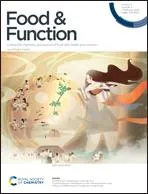
Food & Function provides a unique venue for physicists, chemists, biochemists, nutritionists and other food scientists to publish novel, cutting-edge, original research focussing on food, its nutrients and their relation to human health and nutrition. We welcome research describing the: Physical properties and structure of food and how this relates to sensory perception and human health Biochemical and physiological actions of food components Interactions between foods, gut microbiota and human physiology Nutritional and biological evaluation of food Clinical and population studies using food or food components Development of biomarkers of food intake and effects on human health We also welcome systematic reviews and meta-analyses of existing studies in the literature, provided these are objective and scientifically valid Food in this context is defined as materials of plant, animal or mineral origin, which are consumed orally (by humans) for pleasure and to sustain growth and vital processes. Examples of research topics that are of interest to be published in Food & Function are: Chemistry and physics of food components and digestion processes Relationship between the physical properties/structure of food and nutrition and human health - for example, impact of food matrix or processing on nutrient release and uptake Molecular properties and physiological effects of food components (nutrients, fibres, essential micronutrients, phytochemicals, bioactives, food substitutes, novel ingredients, allergens, flavours and fragrances) Nutritional and health effects of food including bioavailability and metabolism assessment of food components (nutrients, micronutrients and other microconstituents) Efficacy and mechanisms of food constituents in the body - including biomarkers of intakes, exposure and effects Impacts of foods/food components on gut microorganisms and human physiology - For example impact of fermented foods Role of nutrition and diet in human disease prevention and development Cellular and molecular effects/mechanisms of food/food components image block The following types of research are not within the scope of Food & Function: Research relating to traditional herbal medicines, medicinal plants or active compounds extracted from such plants (materials that are primarily consumed as medicine, i.e. the intended purpose is primarily to treat, cure or prevent a non-deficiency disease) or relating to foods not recognised as human diet contributors Animal nutrition research that is not primarily designed as a model to benefit human nutrition (for example, studies of growth/accretion, heat stress, weaning, ruminant digestion, meat quality, etc.) Treatments administered by non-oral routes such as injection (subcutaneous, intramuscular, intraperitoneal, etc.), dermal/transdermal, rectal, inhalation, nasal, etc. Exceptions are when such routes of administration are used for mechanistic/control purposes in the experimental design Pharmacological/pharmaceutical approaches: Encapsulation, emulsification and/or pure controlled release of compounds or bioactives that do not come directly from edible foods, such as dietary supplements - these are better suited to a pharmaceutical journal In vitro or in vivo studies with poorly defined (insufficiently characterised) extracts and studies without appropriate controls will not be considered Cells studies not considering the metabolism of food components ingested – for example, irrelevant exposure of cells to compounds not present in the body after absorption Manuscripts with only a fully theoretical/bioinformatic approach and without appropriate support from analytical evidence will not be considered for publication Studies focussing solely on food engineering, preservation and sustainable technologies – these can be published in our companion journal Sustainable Food Technology Pure food analysis - these can be published in Analytical Methods
おすすめサプライヤー
 上海赫诗特化工有限公司(赫特国
上海赫诗特化工有限公司(赫特国 株式会社Zapata Computing。
株式会社Zapata Computing。 FWA フリードリヒ · ヴェルンツゲスアパレートバウ GmbH
FWA フリードリヒ · ヴェルンツゲスアパレートバウ GmbH 上海沪特ポンプ製造有限公司
上海沪特ポンプ製造有限公司 ゼアン · コンサルタント
ゼアン · コンサルタント 偃師市東園化學工業有限公司
偃師市東園化學工業有限公司 ユクリーガル・ケミカル株式会社
ユクリーガル・ケミカル株式会社 INQUISA S.A.
INQUISA S.A. DECKMA HAMBURG GmbH
DECKMA HAMBURG GmbH 陕西缔都医薬化工有限公司
陕西缔都医薬化工有限公司










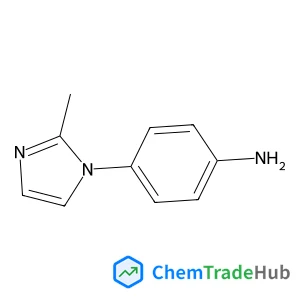
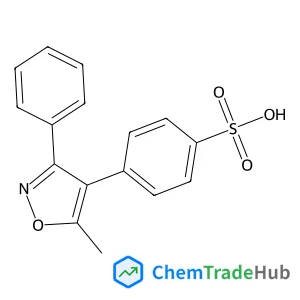
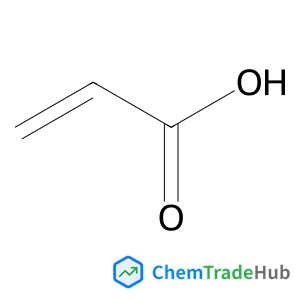
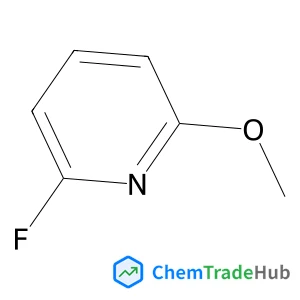
![315234-49-2 - 1-[(Tert-butoxy)carbonyl]-2-(prop-2-en-1-yl)pyrrolidine-2-carboxylic acid 315234-49-2 - 1-[(Tert-butoxy)carbonyl]-2-(prop-2-en-1-yl)pyrrolidine-2-carboxylic acid](/structs/315/315234-49-2-fe31.webp)